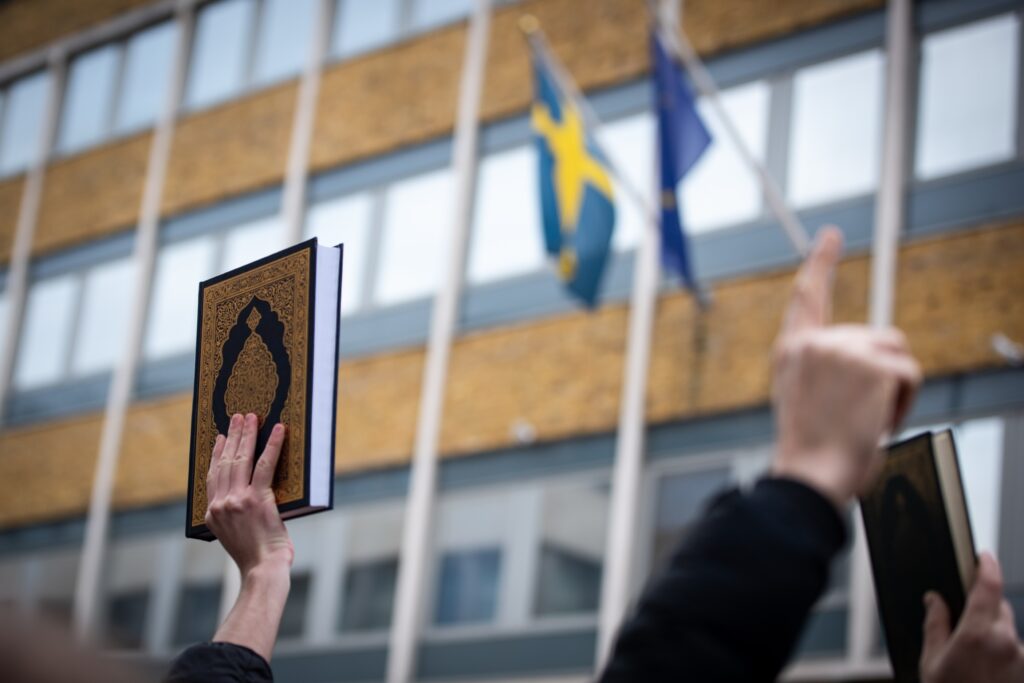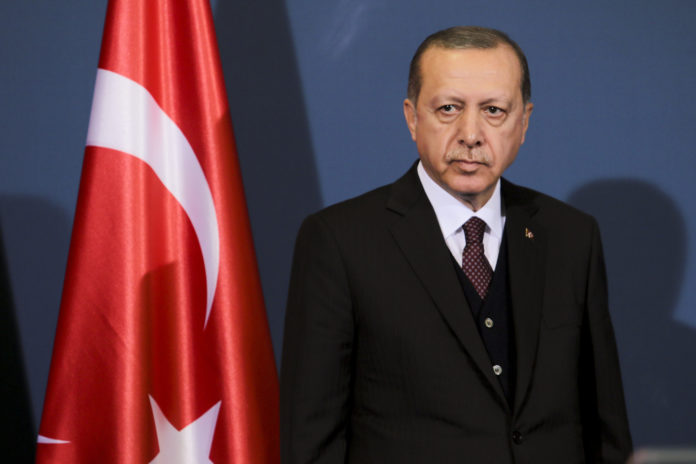Abdel Bari Atwan explains the pragmatic politics of Turkish President Recep Tayyip Erdoğan who recently lifted his veto on Sweden’s NATO membership just weeks after threatening to punish it severely for permitting the burning of the Holy Quran.
It was the well-known Turkish writer Murat Yetkin who first coined the term “Erdoğanism” to describe the political approach pursued by President Recep Tayyip Erdoğan over the course of 20 years in power: characterised by opportunistic pragmatism, rhetorical populism, and the ideological marriage of political Islam with Turkish nationalism.
I remembered this term when the news broke that Erdoğan had agreed to Sweden joining NATO after most of his conditions were met: above all for Sweden to stop protecting Kurdish dissidents, and the Biden administration to drop its veto on a multibillion-dollar sale of F-16 warplanes to Türkiye and lift various trade and investment sanctions.
It became clear that Türkiye would perform a U-turn when Erdoğan received Ukrainian President Volodymyr Zelensky, repatriated five commanders of the neo-Nazi Azov brigade in a blatant breach of the prisoner exchange agreement with Russia, promised to support Ukraine’s membership of NATO, and provided it with a gift of Bayrakdar drone technology.
Erdoğan thereby firmly reinserted himself into the fold of the U.S. and NATO, of which his country was a founding member, and turned his back in whole or part on his newfound alliance with Russia, after having successfully used it as a bargaining chip with the U.S. to achieve his goals.
That chip lost much of its utility after Erdoğan and his party won the May 14 presidential and parliamentary elections. So he replaced it with a no less effective and profitable one — Sweden’s accession to NATO which could only happen with Türkiye’s approval — with absolutely no regard for the feelings of Russia and its president at this sensitive juncture.
This turnaround was largely due to Türkiye’s acute economic crisis, featuring high inflation, retrenchment, a weakening currency and declining investment. After several “Erdoğanist” pilgrimages to the Gulf region failed to secure investments to salvage the Turkish economy, Erdoğan concluded his most effective course would be to head westwards via the Swedish gateway.
Subscribe to our newsletter and stay updated on the latest news and updates from around the Muslim world!
But banking on the West remains fraught with risks.
The U.S. and its European partners have little trust left in Erdoğan after he used the migration card to blackmail them, and then turned to and aligned with Russia at the height of the Ukraine war: obtaining S-400 missile systems from it as an alternative to the US-made Patriot, and cooperating with it politically in Syria, Azerbaijan, and elsewhere.
That is why the Europeans refused to trade the lifting of the Turkish veto on Sweden’s NATO membership for the reopening of the door to Turkish accession to the EU.
They saw how Erdoğan broke ranks his fellow NATO members and used the Swedish accession card to extort political and economic concessions for several months. How can they be sure the same wouldn’t happen if Türkiye under his leadership were to join the EU, as its most populous “Muslim” member with its second strongest army?

President Putin, facing his biggest internal challenge since he came to power (the Wagner mutiny) and in open war with NATO (most recently featuring the supply of cluster and depleted uranium munitions to Kiev) was stabbed in the back by his supposed friend Erdoğan.
The same can be said of Iran, albeit to a lesser degree. Kremlin spokesman Dmitri Peskov tried to play down the extent of the shock by remarking that Swedish membership of NATO would have negative consequences for his country’s security, but that Russia understands Türkiye’s submission to U.S. pressure and its NATO membership.
It remains to be seen what impact Türkiye’s about-face will have on its Russian-brokered understandings with Syria, the anticipated summit between the two countries’ presidents, and the security and political talks held under the Astana process aimed at restoring relations. The same applies to the meeting Putin had been due to hold with Erdoğan in Istanbul at the end of the month.
Erdoğan is driven by his own personal interests first and Türkiye’s national interests second. Principles have no place in his political lexicon, and he does not hesitate to take any decision he thinks will serve those two interests whether at home or abroad.
That is why nobody was surprised by his decision to lift his veto of Sweden’s NATO membership just weeks after threatening to punish it severely for the unforgivable sin of permitting the burning of the Holy Quran. Interests take precedence over principles, beliefs, and alliances, and bigger surprises can be expected to follow.
This article was first published in Raialyoum.



















